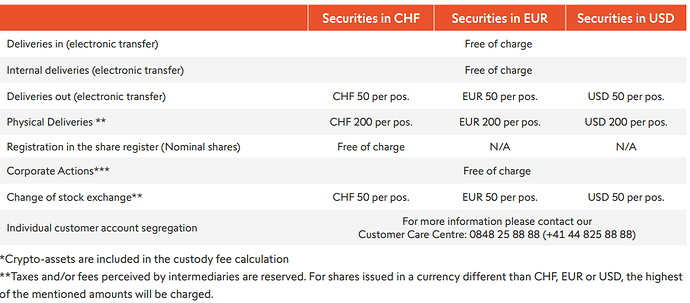If you think the stock will go lower, just simply buy puts, that way you can profit by closing them if you were correct without risking assignment.
First, listed options are traded on organized exchanges, same as other financial instruments. You are not trading against other users of IB, you are not trading against IB (this is how CFD work), you are trading against all exchange participants, including institutionals, market makers and so on.
Second, you can still trade Swiss warrants at IB, there is just no physical delivery. It means for example to profit from call, you have to close your position before it expires.
P.S. I also think that buying options is a better tool to profit from strong short term price movements and your risk is controlled.
It’s the “phisical delivery” that I don’t understand. No one is expecting a phisical delivery I think. I’d expect a delivery of the underlying on my account, that’s it. So I understood they meant that if I’ve bought a call and I want the underlying, I have to ask for it before the option ends.
Yes, this is called “physical delivery” ![]()
Really?
on SQ it seems to be something else. As in paper form.
Edit: I googled it. It seems that they use the same terms for two different actions. For options, “phisical delivery” it’s just an electronic transfer of the underlying. Confusing.
You haven’t yet come across funds that invest in physical cryptocurrencies, right?
General word of advice, if you’re doing options on single stocks or indices it’s much better to do EUREX (for European stonks) / ICE/CME (for American stonks) options than warrants.
Source: “just trust me bro”
“physical delivery” means the delivery of the underlying, whether stock/funds/commodities.
As opposed to “cash settled”
Hi, I try to be more precise: I have some CS share in USD (I trade on NYSE). I aim to sell some call options over them but I’m worry about the moment that the CS share will convert to UBS share. In such a case the buyer of the call how can exercise the contract while CS share will disappear?
Ok but the CS share seams to be disappear in some months. How to buy automatically somethings that exists anymore?
Any source would be much appreciated anyway ![]() .
.
Is this an opinion or a fact?
I will find out… I have in my possession:
long 30,000 CSGN shares (bought @ 2.173; worth 25 kCHF today)
short 100 Apr 21 2.85 Call (sold for CHF 2,000 and basically worthless as of today)
short 200 May 19 1.80 Call (sold for CHF 6,000 and basically worthless as of today )
My guess is that the actual merger and delisting of CSGN will take longer and that all my calls will expire worthless.
I will keep you posted ![]()
Glad, it’s only a paper account…
Fine. However the problem is with a far away expiration date, for example the options having 17.01.25 as expiration date…
I have a position on CS open:
Call Warrant CSGN 22´600@0.088, end date March 24, total value of 1’988.80, currently worth 22.60…
An inglorious example of a lost bet I would say. Ironically the issuer is UBS ![]() .
.
I consider the bet lost, although I’d be surprised to see what happens to this position after the absorption of CS
